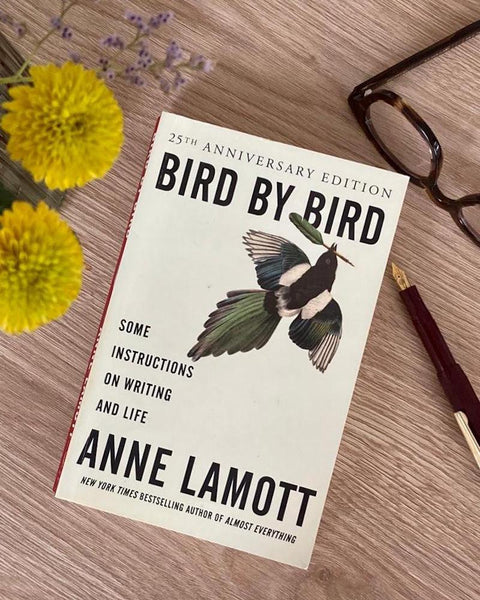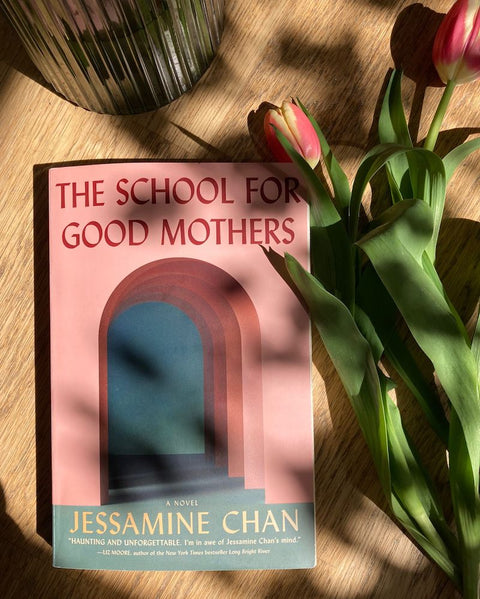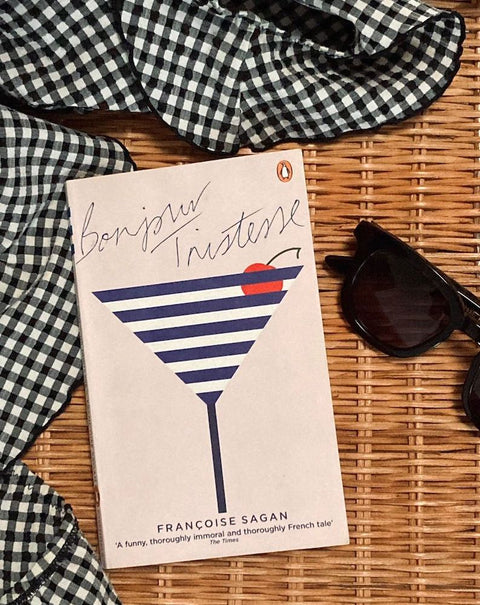The internet is saturated with advice on how to be more productive, more creative, more successful. Open Instagram or LinkedIn any time of day and be bombarded with quotes and cliche observations about how all you need to do is want it bad enough. Just do it. Believe in yourself, and the rest will follow.
This isn’t necessarily bad advice, but the delivery leaves some things to be desired.
I believe that good advice needs to be packaged in a specific way in order to be truly felt by the recipient. For a piece of advice to be good, it needs to not only come from a person with experience in the matter, but it must also be delivered with the greatest amount of empathy, understanding and care.
The best advice you’ll ever get as a creative
If you’re a writer or a creative or just someone who struggles with starting (and following through on) creative projects, I can whole-heartedly recommend Bird by Bird: Some Instructions on Writing and Life by the wonderful Anne Lamott. Though meant as a guide for writers, Bird by Bird offers sincere and attainable advice for anyone who wants to live a life where you don’t stress about if you’re doing it right, where doing the thing is more important than getting recognition for having completed the thing. It’s a celebration of creativity for creativity’s sake, and Lamott offers the kindest, most real approach to self-love I have ever come across.
For this month’s book review, I’ll be summarizing the key lessons and messages imparted by Lamott and sharing some of her most inspiring quotes.
Perfectionism
“Perfectionism is the voice of the oppressor, the enemy of the people. It will keep you cramped and insane your whole life [...]I think perfectionism is based on the obsessive belief that if you run carefully enough, hitting each stepping-stone just right, you won’t have to die. The truth is that you will die anyway and that a lot of people who aren’t even looking at their feet are going to do a whole lot better than you, and have a lot more fun while they’re doing it.”
I’m not joking when I say that I re-read this paragraph every week. I have a screenshot of it on my phone and I return to it often when my mind and soul are all bunched up in self-hatred.
Perfectionism is the biggest obstacle when it comes to writing, and it’s the biggest obstacle when it comes to having a loving, understanding relationship with yourself. Our inner critic can be brutal, telling us how terrible we are, how we can’t do anything right, that every mistake, no matter how small, is a blight on our character.
The fear of failure and humiliation keeps us from living in a way that suits us. We operate within the norm because we think acceptance will make us happy. But Lamott invites us not to be so tidy, both in our work and in our pursuit to become the person we want to be: “Tidiness suggests that something is as good as it’s going to get. Tidiness makes me think of held breath, of suspended animation.” Creativity requires us to explore and to get our hands dirty. It means drawing outside the lines and being okay with the resulting picture.
Doing it step-by-step, or bird-by-bird
The book’s title originates from one of Lamott’s childhood anecdotes. She recounts how her older brother procrastinated an entire summer vacation to write a report on birds, and then had the last day before school started again to complete it. Lamott’s brother was sitting at the kitchen table, despairing at the mountain of work that lay ahead of him, when their father sat down next to him and gave him this advice: “Bird by bird, buddy. Just take it bird by bird.”
The bird-by-bird approach is what Lamott recommends for any task that may seem huge and unconquerable. For writing, she suggests that all you have to do is write down a paragraph, maybe even just a sentence. More often than not, just that first sentence is enough to get the ball rolling.
Again, Lamott stresses that the approach shouldn’t be punishing. Don’t be mean, but encouraging. “Say to yourself in the kindest possible way, Look, honey, all we’re going to do for now is to write a description of the river at sunrise, or the young child swimming in the pool at the club, or the first time the man sees the woman he will marry.” It’s what Lamott calls a short assignment: breaking down any project into a set of smaller sections instantly takes away the fear of getting started.
Looking at the world with awe
Kafka once wrote that whoever retains the ability to see beauty never grows old. Lamott expresses a similar sentiment, extolling the benefits of having a sense of “wonder, of seeing things anew, things that can catch us off guard, that break in on our small, bordered worlds.”
“There is ecstasy in paying attention.” This is true – and ever more difficult to achieve. Our minds have been tuned to look at most of the world through the lens of social media. We live our lives in pursuit of photographable moments, in the very least with the intent of impressing others, of making it look like we’re living a life worth living.
This is something I still struggle with, even after deleting my social media accounts. Sometimes I stroll down a street and see a beautiful building with a gorgeous arched doorway and think ‘That would look good on Instagram.’ Learning to see the world with fresh eyes - meaning not just approaching things with a sense of genuine awe, but feeling at peace knowing you can enjoy this moment for yourself and still get a lot out of it, is a tough lesson nowadays, but one that is well worth it.
Confidence & Intuition
Confidence follows intuition. When you trust in yourself and are “militantly on your own side”, as Lamott writes, then you are well armed in the battle against anxiety and self-doubt.
But, for most of us, we lost our intuition somewhere along the way. Peer pressure or wanting to please our parents might have driven it out of us, or we have fallen victim to the millions of voices that try and speak to us every day, through news sites, advertisements, Netflix series, TikToks, that girl at the bar who just said the wrong thing to you at the wrong time.
“You get your intuition back when you make space for it, when you stop the chattering of the rational mind. The rational mind doesn’t nourish you. You assume that it gives you the truth, because the rational mind is the golden calf that this culture worships, but this is not true. Rationality squeezes out much that is rich and juicy and fascinating.”
The solution? Daydream. Write down your silliest thoughts. Doodle in the margins. Be still and listen. When you experience an emotion, take a beat to understand where it’s coming from. There’s at least seven billion different ways of thinning and feeling – your way is just as right as the others.
Find Bird by Bird: Some Instructions on Writing and Life here for purchase.



